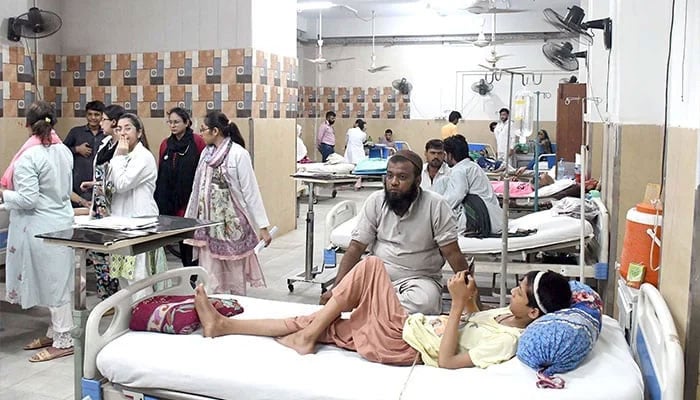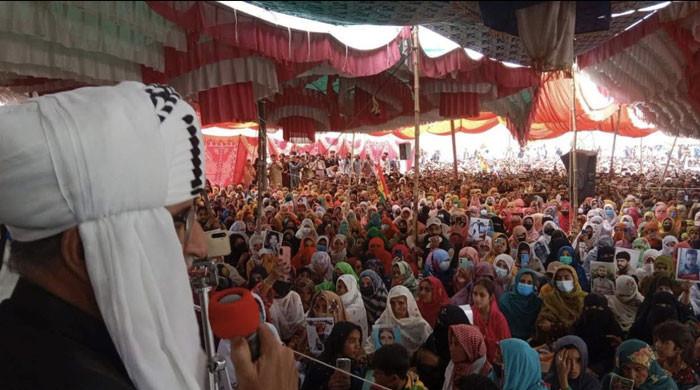Heatwave death toll climbs to 49 as four more die in Karachi
Abbasi Hospital recorded 23 deaths from heatstroke, Civil Hospital 18, and JPMC 5 in 10 days, says health dept
July 01, 2024

- Abbasi Hospital reports four deaths in 24 hours.
- PMD says last night temperature recorded 4.1°C.
- Port city registered 39.2°C on Sunday.
KARACHI: With the metropolis reeling under the sizzling temperatures, four more people lost their lives amid prolonged loadshedding in Karachi on Monday, taking the death toll to 49 since June 21, confirmed the Sindh Heath Department.
In a statement, the health department said that Abbasi Shaheed Hospital reported four deaths from heatstroke in 24 hours.
During the 10 days, Abbasi Hospital recorded 23 deaths from heatstroke, Civil Hospital 18, Jinnah Postgraduate Medical Centre (JPMC) 5 and Qatar Hospital 3, read the statement.
The port city has been gripped by intense hot and humid weather for the past couple of days due to low air pressure.
Amid the ongoing heatwave, Karachi’s monthly average temperature remained 4 degrees Celsius higher than average, according to a Met official. The port city registered 39.2°C on Sunday with feels-like temperature climbing to 55°C at 5pm.
In addition to this, as dry and hot weather conditions with spells of heatwaves grappled in the city, the metropolis recorded its hottest night of July since 2021 last night.
According to the PMD, in July 2021 and 2022, temperatures were recorded at 31°C, while last night the lowest was recorded at 32°C.
The PMD says that last night the temperature was recorded 4.1°C above normal.
The Met Office, however, predicted heavy rains in most parts of Pakistan from tomorrow.
The upper and central parts of the country will see vigorous monsoon activity during the week, the meteorological department said, asking authorities to remain alert and take necessary measures to avoid any untoward situation.
However, as Karachi endures scorching heat and experiences its highest night temperature since 2021 a day earlier, there is no forecast of rain in the city.
"Vigorous monsoon activity [is] predicted in [the] upper and central parts during the week. Torrential rainfall in [the] upper parts of the country may cause devastating effects on daily routines," the Pakistan Meteorological Department (PMD) said in a statement.
The Met Office informed the public that strong monsoon currents from the Arabian Sea and the Bay of Bengal are likely to penetrate the upper parts of the country from July 3.











